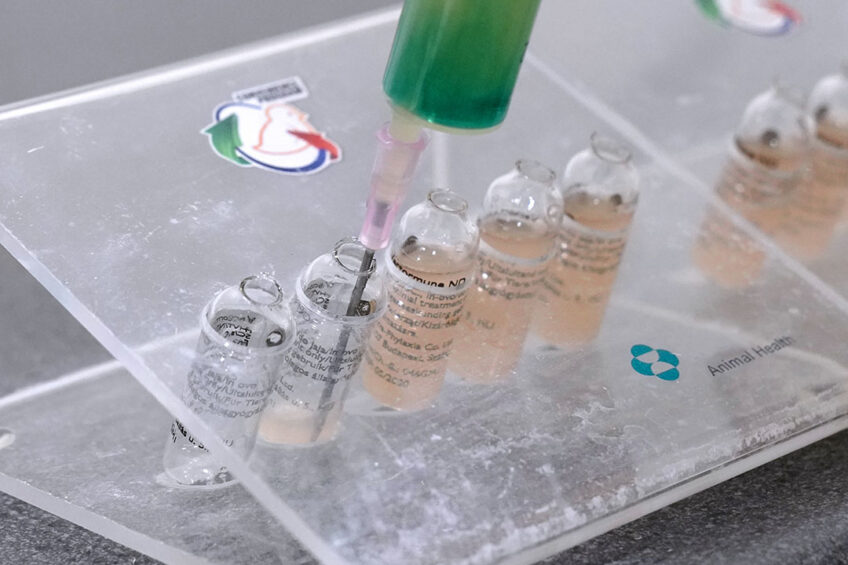Two vaccines show promising results against avian influenza

Two avian influenza vector vaccines that have been studied by Wageningen Bioveterinary Research have shown promising results. They have been found to be effective in protecting birds against the virus itself and – more importantly – also prevented birds from shedding the virus.
The Dutch Minister of Agriculture, Piet Adema, reported the trial results in a letter to the House of Representatives. The vaccines have been tested under controlled conditions at Wageningen Bioveterinary Research in Lelystad. The next step will now be to investigate whether the vaccines are just as effective under commercial conditions. Further tests must incorporate all kinds of other factors that also play a role in effectiveness, such as other vaccinations and house climate.
Prevention of shedding
In the Netherlands, an important condition is that avian influenza vaccines not only prevent the symptoms of the disease but also prevent its spread. If that is not guaranteed, it is feared that the virus can remain under the radar and eventually mutate into more dangerous variants. Indeed, 2 of the 4 vaccines tested by WBVR in the vaccine trial also appear to significantly reduce virus shedding, at least in controlled trial conditions.
Adema says that a field trial is now being started on 1 or 2 laying hen farms, with both promising vector vaccines developed by Ceva and Boehringer Ingelheim. The field trial will last more than a year to see how long the vaccines actually offer protection under commercial conditions. Adema expects the first interim results at the end of the year.
No authorisation yet
Even if the 2 vaccines work well in the field trial, several steps still need to be completed. Both vaccines are not yet authorised in the European Union. Adema is starting preparations for a vaccination programme for poultry in the Netherlands, he says, because many other things have to be sorted out and arranged around vaccination. He wants to roll out vaccination step by step, starting with a pilot on several farms after at least the first results of the field trial later this year.
The minister emphasises that the pharmaceutical companies themselves are responsible for the authorisation of their vaccines. Without that permission, it is irresponsible to vaccinate on a large scale, says Adema.












